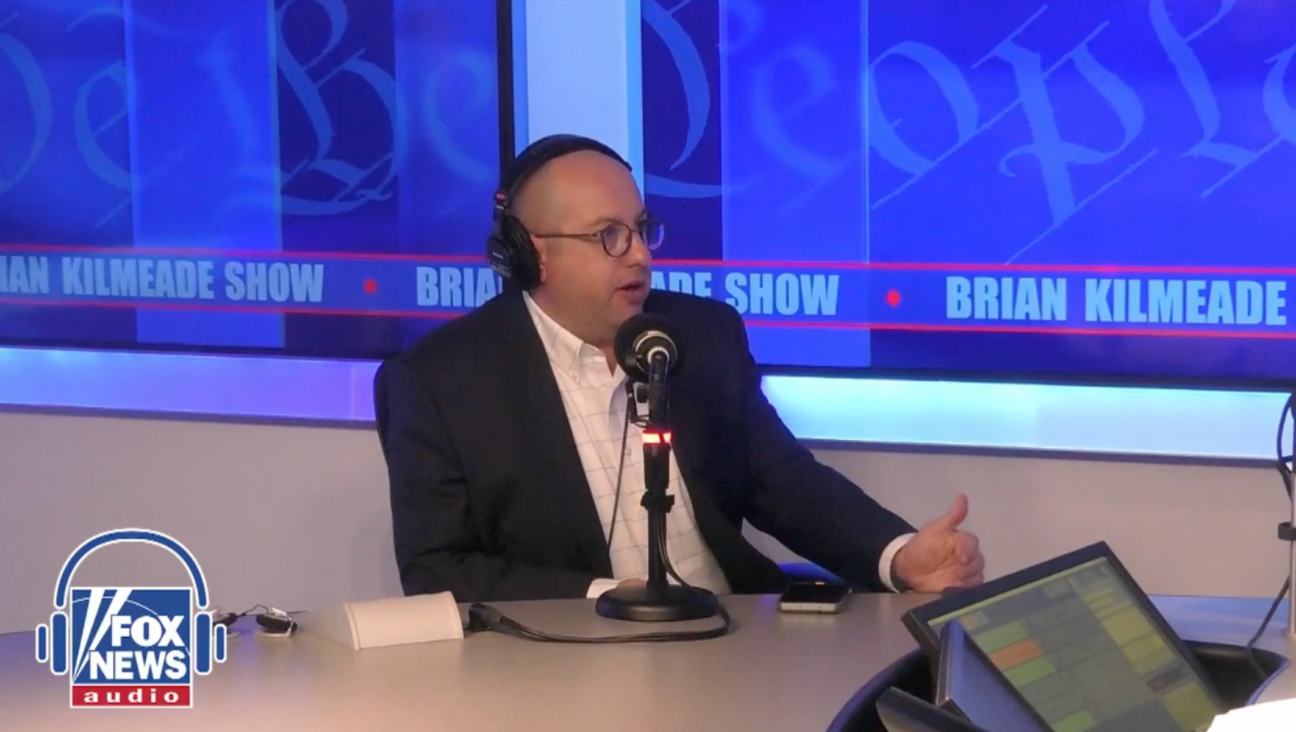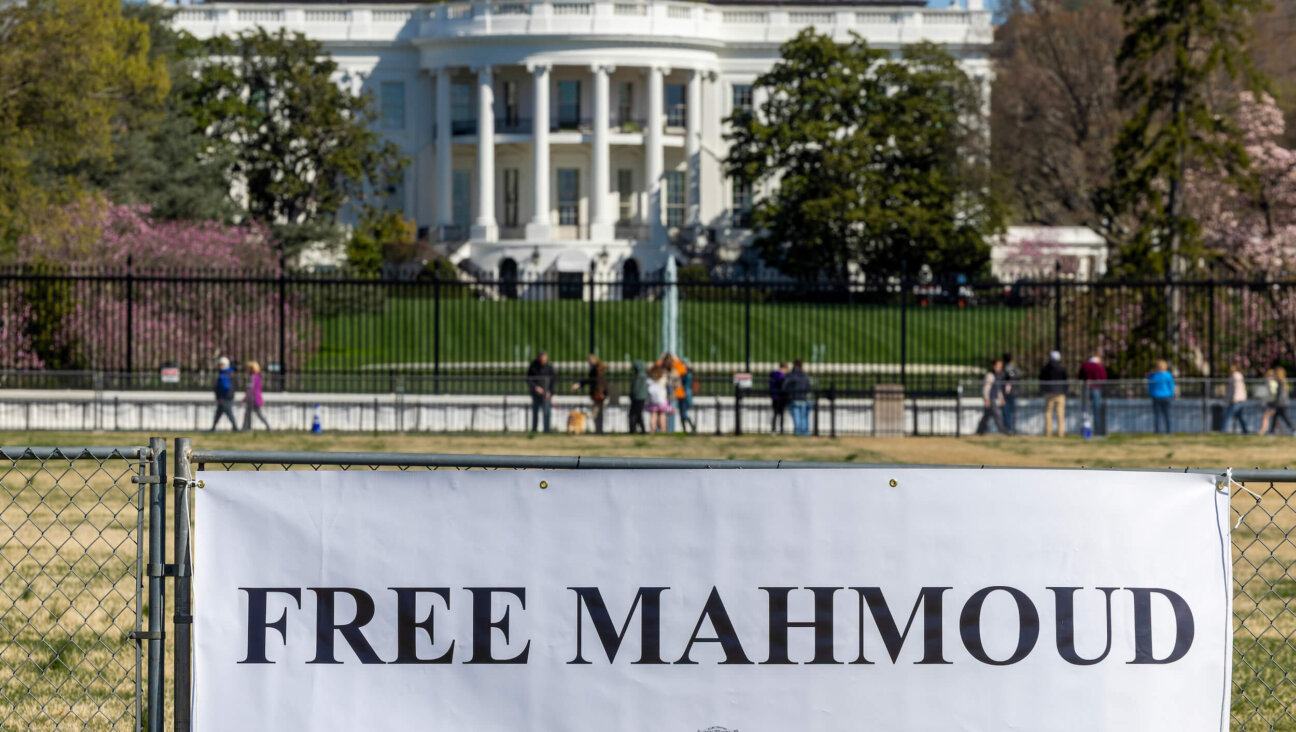Keep Taboo on Conversion to Christianity
On contemplating a Jew who has become a Christian, such as indicted corporate lawyer Mark Belnick, the sensation you get may be like being on a roller coaster that has begun its swooping drop from a great height, as if the bottom of your stomach had slid away. Featured in a recent front-page Wall Street Journal profile, Belnick provides an occasion to wonder why Jews are made so deeply uneasy by Jewish-to-Christian conversion stories.
As radio commentator Michael Medved has noted, the only thing Jews can agree on is that Jesus wasn’t God. Of course, not every single Jew agrees. You hear about unusual cases like Belnick, a Jew-turned-Catholic who may have to spend 25 years in prison for grand larceny, allegedly committed when he was general counsel for Tyco International.
One knows Jews who have become Buddhists, and many more who embrace total alienation from all religion. Such people provoke few notably uneasy feelings. Yet in discussions with friends the day the article on Belnick came out, I kept hearing how “disturbing” they found his story. It wasn’t the fact that he’s accused of stealing $12 million, among other misdealings, but that as a Jew, no less the former president of a suburban Conservative synagogue, he was simultaneously preparing to be baptized as a Roman Catholic.
I have a small personal connection to Belnick. The priest who won him over is someone I knew casually in New York. A charismatic fellow, Father John McCloskey makes it his business to evangelize the brightest and the wealthiest potential converts. A Jew is a specially valued prize.
A previous McCloskey trophy is economist Lawrence Kudlow, now with his own news show on CNBC. I knew Larry when we were both editors at National Review. I’d encounter McCloskey ambling down the hallway to counsel Larry in his office. A Jew who knew little about Judaism and was struggling with personal demons, Larry was soon hooked, and McCloskey reeled him in.
What’s so “disturbing” about Belnick and Kudlow? An easy but unsatisfying answer points to the history of Christian anti-Jewish persecution. This fails to satisfy one’s curiosity because cases like Belnick’s affect us equally whether we’re the type of Jew in whose imagination antisemitism burns brightly as an unquenchable threat, or whether we’re the type who spends little time worrying about antisemitism.
Rather, what we are dealing with here is an inborn emotional trigger. By way of analogy, consider the revulsion human beings feel at the thought of sexual relations among family members. But there are evolutionary reasons given for this taboo — notwithstanding that rare instances of incest are known. No such reasons can be given for the taboo against Christianity.
The Talmud suggests that God wired us this way. In the centuries immediately prior to the Christian era, the men of the Great Assembly, the Jewish leaders of the post-prophetic age, prayed that the Jews be released from an overwhelmingly powerful temptation to worship other deities (Sanhedrin 64a). God responded affirmatively to their request — at least, it would appear, insofar as Christianity would be concerned. The taboo isn’t absolute, but it is pretty effective.
It wasn’t that He saw nothing positive in the new religion. On the contrary, as Rabbi Judah Halevi writes in the great medieval apologetic work the “Kuzari,” by God’s “secret and wise design” Christianity was born of a seed of Jewish origin, through which it transforms the world for the good. “The Law of Moses has changed them that come into contact with it, even though they seem to have cast the Law aside.”
I would add that to remain healthy, Christianity requires the existence not merely of the Jewish texts included in the Christian Bible, but of Jews themselves. A Jewish philosopher of a different stripe, the Reform saint Leo Baeck, shrewdly delineated the tension in Christianity with its Jewish origins. In some Christian branches, notably Lutheranism, there is a distancing from the Jewish content in Christian Scripture, while in others, such as Calvinism, one sees an exaltation of Hebrew ethics. Lutheranism, of course, produced Nazi Germany, while Calvinism, by way of English Puritanism, produced America.
When Christians become detached from the Jewish seed at the heart of their faith, they go down the road Lutheranism did, with disastrous results. But Jews living in the midst of Christians can, if the relationship functions as it should, act as an inspiration to look to the vital roots of the Christian religion. They need us as Jews.
In God’s “secret and wise design,” the Christian-Jewish polarity is part of the plan. The spiritual trajectory of a Mark Belnick or a Larry Kudlow is like food traveling the wrong way up the esophagus. We register this as nausea. Christians would feel similarly if they understood entirely what’s good for us all, Jews and Christians alike.
David Klinghoffer’s is the author of, most recently, “The Discovery of God: Abraham and the Birth of Monotheism” (Doubleday).
The Forward is free to read, but it isn’t free to produce

I hope you appreciated this article. Before you go, I’d like to ask you to please support the Forward.
At a time when other newsrooms are closing or cutting back, the Forward has removed its paywall and invested additional resources to report on the ground from Israel and around the U.S. on the impact of the war, rising antisemitism and polarized discourse.
Readers like you make it all possible. We’ve started our Passover Fundraising Drive, and we need 1,800 readers like you to step up to support the Forward by April 21. Members of the Forward board are even matching the first 1,000 gifts, up to $70,000.
This is a great time to support independent Jewish journalism, because every dollar goes twice as far.
— Rachel Fishman Feddersen, Publisher and CEO
2X match on all Passover gifts!
Most Popular
- 1

News A Jewish Republican and Muslim Democrat are suddenly in a tight race for a special seat in Congress
- 2

Fast Forward The NCAA men’s Final Four has 3 Jewish coaches
- 3

Film & TV What Gal Gadot has said about the Israeli-Palestinian conflict
- 4

Fast Forward Cory Booker proclaims, ‘Hineni’ — I am here — 19 hours into anti-Trump Senate speech
In Case You Missed It
-

Fast Forward Jerusalem Post editor Zvika Klein, arrested in ‘Qatar-gate,’ says he’s being unfairly prosecuted for his reporting
-

Fast Forward Trump fires national security officials, reportedly at urging of Laura Loomer, far-right Jewish ‘Islamophobe’
-

Fast Forward Display honoring Jewish women graduates of naval academy removed ahead of Hegseth visit
-

Yiddish טשיקאַוועסן: מיידעלע געפֿינט 3,800־יאָריקע קמיע לעבן בית־שמש, ישׂראלTIDBITS: Little girl finds 3,800-year old amulet near Beit Shemesh, Israel
אַן עקספּערט פֿון פֿאַרצײַטיקע קמיעות האָט באַשטעטיקט אַז די קמיע איז געלעגן אויפֿן אָרט פֿונעם אַמאָליקן לאַנד כּנען.
-
Shop the Forward Store
100% of profits support our journalism
Republish This Story
Please read before republishing
We’re happy to make this story available to republish for free, unless it originated with JTA, Haaretz or another publication (as indicated on the article) and as long as you follow our guidelines.
You must comply with the following:
- Credit the Forward
- Retain our pixel
- Preserve our canonical link in Google search
- Add a noindex tag in Google search
See our full guidelines for more information, and this guide for detail about canonical URLs.
To republish, copy the HTML by clicking on the yellow button to the right; it includes our tracking pixel, all paragraph styles and hyperlinks, the author byline and credit to the Forward. It does not include images; to avoid copyright violations, you must add them manually, following our guidelines. Please email us at [email protected], subject line “republish,” with any questions or to let us know what stories you’re picking up.















